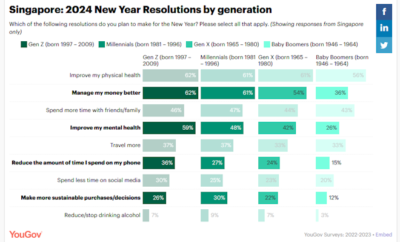
Health x Wellness
In conversation with Dr. Charles Tsang, Senior Colorectal Specialist
We speak with Dr. Charles Tsang, Senior Colorectal Specialist, Mount Elizabeth Novena Hospital about Colorectal cancer, genetic predisposition and the importance of early screening.
According to the Health Promotion Board, colorectal cancer is the number one cancer in Singapore.
Screening for colorectal cancer should begin from age 50 for people with no symptoms. The main screening test – the Stool blood test (FIT) – detects the presence of small amounts of blood in stools. It is recommended to screen using FIT once a year or more if symptoms develop between screenings.
Active Age (AA): What is colorectal cancer?
Dr. Charles Tsang (CT): Colorectal cancer is a cancer arising from the colon or rectum, which are both medical terms for our large intestine. It is currently the most common cancer in Singapore, for both males and females combined.
AA: Can you share about how family history can increase the risk of someone developing this cancer?
CT: One of the causes of colorectal cancer is genetic predisposition, that is, we have inherited an abnormality in one of our genes that make it easier for cells to mutate or change into cancerous cells.
Therefore, if one has colorectal cancer, family members might have a higher risk of getting colorectal cancer too. Researchers have identified some of these common genetic mutations.
AA: Why is early screening important for this type of cancer and possibly others? What can early screening capture?
CT: Three quarter of colorectal cancers arise from polyps. In the remaining one quarter, the cancer arises directly from a transformed mucosal lining.
In the former situation, early screening with a colonoscopy from age of fifty will help detect the polyps early and removal of the polyp will hence prevent cancer transformation from occurring.
In the second scenario, these direct pathway cancers are often associated with specific inherited genetic mutations which in itself would be associated with a strong family history of colorectal cancer. Therefore, the prevention strategy would be self-awareness of family history and susceptibility and commence screening even earlier at a younger age.
AA: What are some ways to decrease the risk of developing colorectal cancer?
CT: Other factors associated with colorectal cancer include living a sedentary lifestyle and diet. A healthy lifestyle with regular exercise and a balanced diet is to be encouraged.
AA: Post detection, how should someone look to change their lifestyle to manage the symptoms and treat the condition?
CT: If one is diagnosed with colorectal cancer, then it is important to go for treatment recommended by your doctors. Treatment often entails surgery to remove the tumour. Depending on the stage of cancer, the follow-up can include chemotherapy and or radiation therapy.
Mount Elizabeth Hospitals is holding a half-day “Knowing is half the battle” health Seminar on heart disease and colorectal cancer.
Date: 18 June
Time: 1.30 – 4.30pm
Venue: Mount Elizabeth Novena Hospital, Level 1, 38 Irrawaddy Road, Singapore 329563
Fees: $5 with one high tea break and a goodie bag
Highlights
Dr Kenneth Guo, Cardiologist & Physician
“How Do I Know If I Have Heart Disease?”
This talk will explore the warning signs of heart disease, common investigations and treatment options to restore our health.
Dr Charles Tsang, Senior Colorectal Specialist
“Why Your Colon Health Counts?”
Find out more from our specialist on the causes of colorectal cancer, prevention tips, importance of early screening and its treatment options.
More details and tickets can be purchased at the registration website. Exclusively for Active Age readers, Mount Elizabeth Hospitals has shared a promotion code to waive the S$5 fee. To activate this discount, use promotion code “payzero4mte”.









